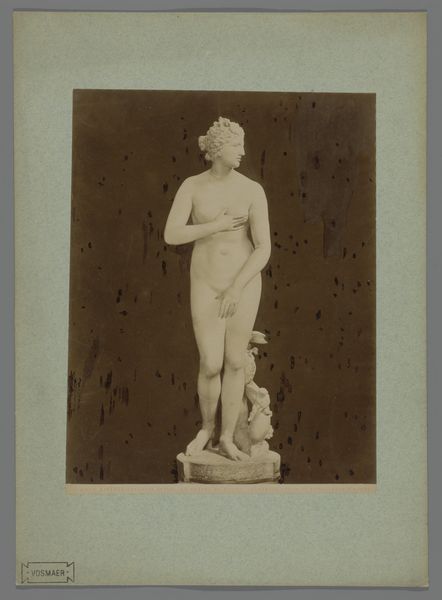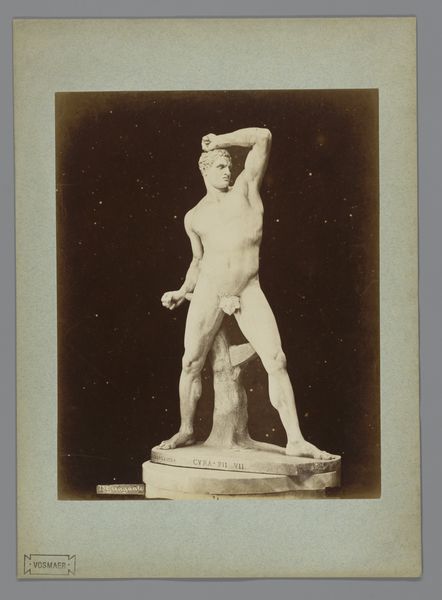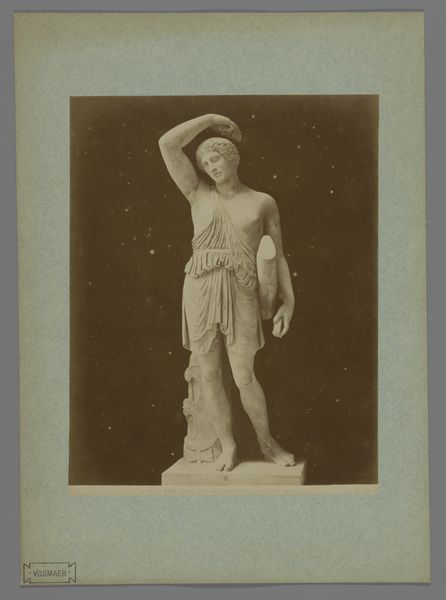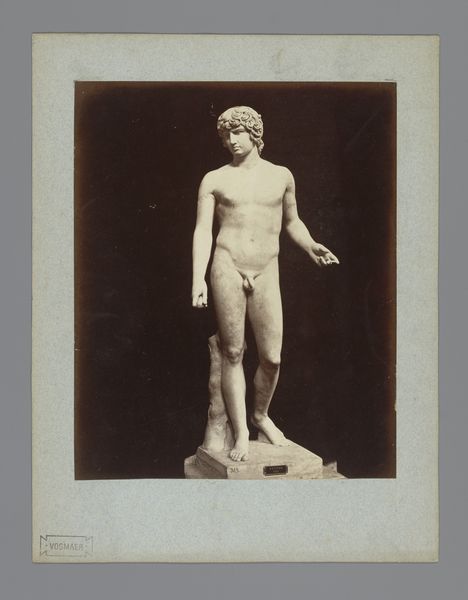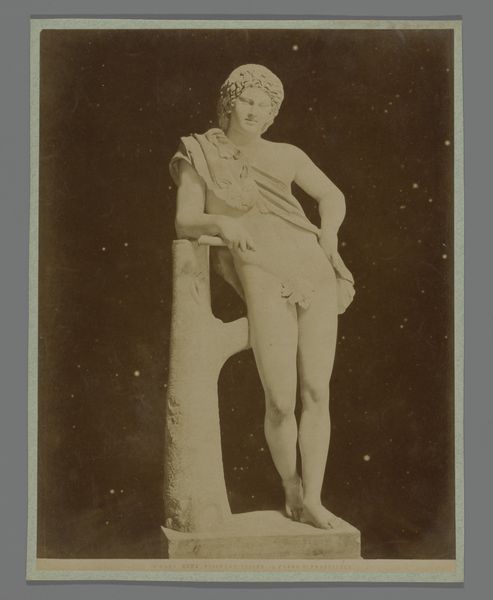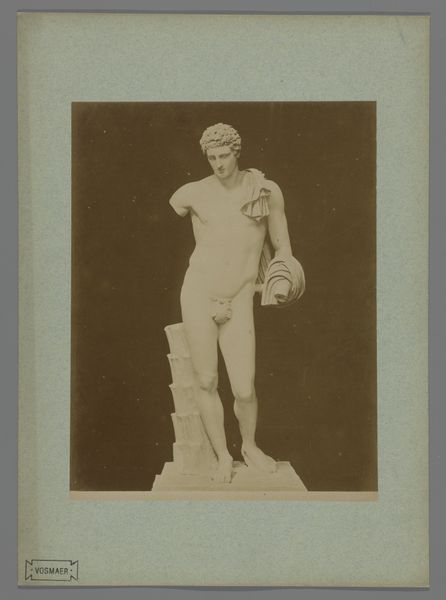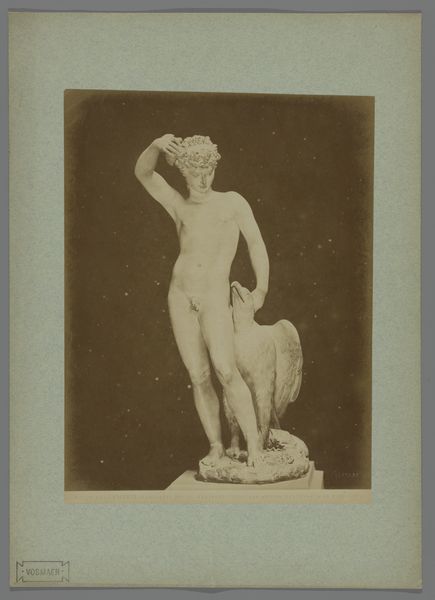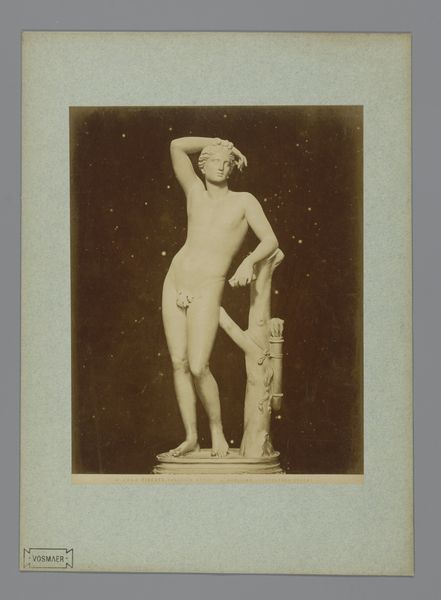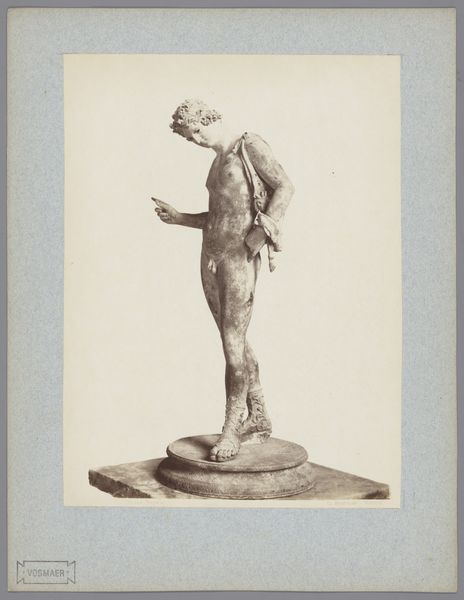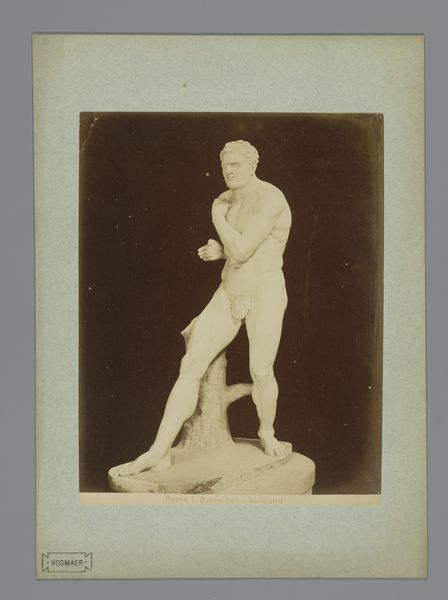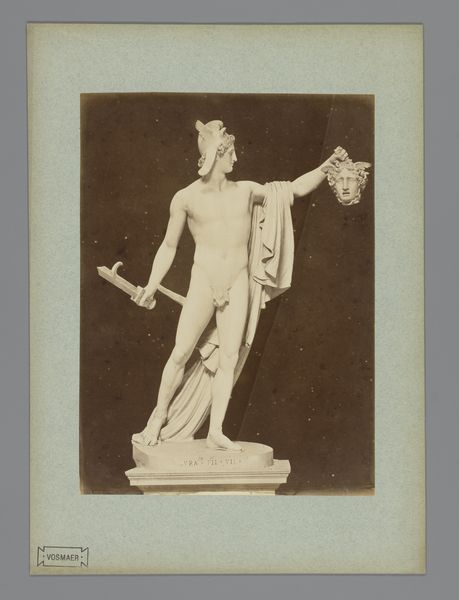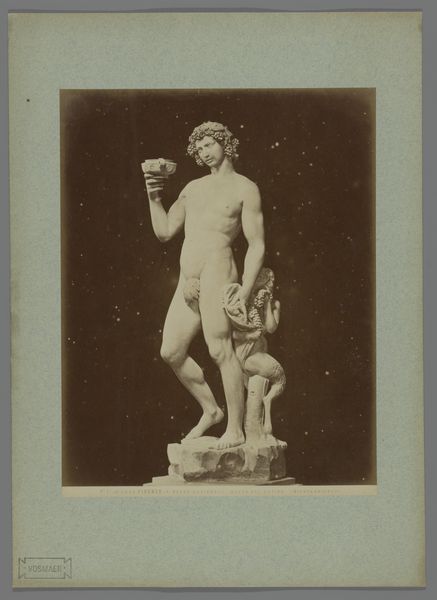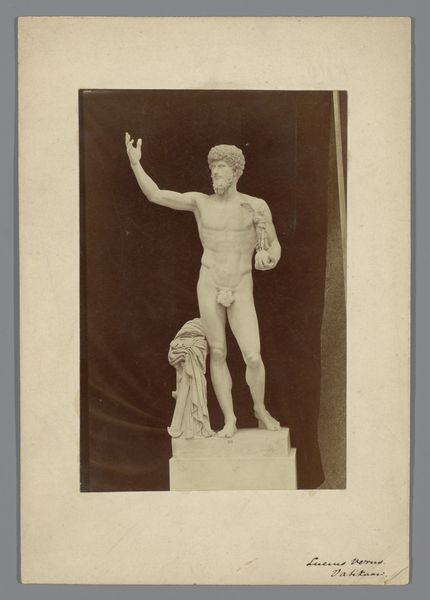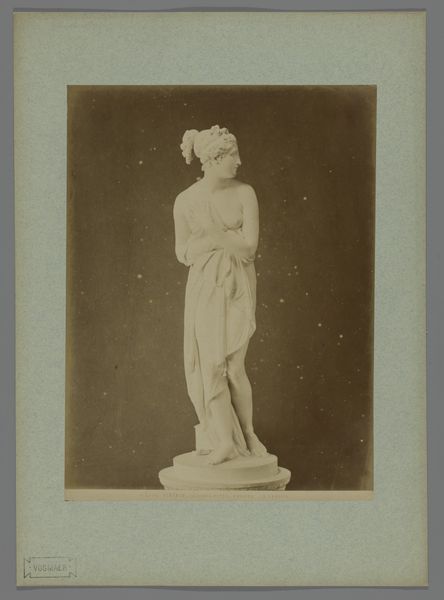
Sculptuur van Mercurius in de Galleria degli Uffizi te Florence, Italië 1857 - 1900
0:00
0:00
fratellialinari
Rijksmuseum
bronze, photography, sculpture
#
portrait
#
greek-and-roman-art
#
classical-realism
#
bronze
#
figuration
#
photography
#
framed image
#
sculpture
#
history-painting
#
academic-art
#
realism
#
statue
Dimensions: height 255 mm, width 189 mm, height 355 mm, width 255 mm
Copyright: Rijks Museum: Open Domain
This photograph of a sculpture of Mercury in the Uffizi Gallery, Florence, was made by the Alinari brothers. It's a fascinating window into the cultural values of late 19th-century Italy. Photography at this time was still relatively new. The Alinari brothers, as a commercial enterprise, understood the value of art as a commodity. Their images helped disseminate Renaissance art, shaping and reinforcing ideas about cultural heritage and national identity. Mercury, the Roman god of commerce, was an apt choice. His image invokes prosperity and cultural sophistication, qualities Italy was keen to project on the world stage. To understand this image fully, we might look into archives of photography businesses of the period, tourism and marketing, as well as study the histories of the Uffizi Gallery and its visitors. These are the kinds of resources that can tell us much more about the image than what's just on the surface. Ultimately, art like this reflects not only artistic skill but also the social, economic, and political contexts of its creation and consumption.
Comments
No comments
Be the first to comment and join the conversation on the ultimate creative platform.
